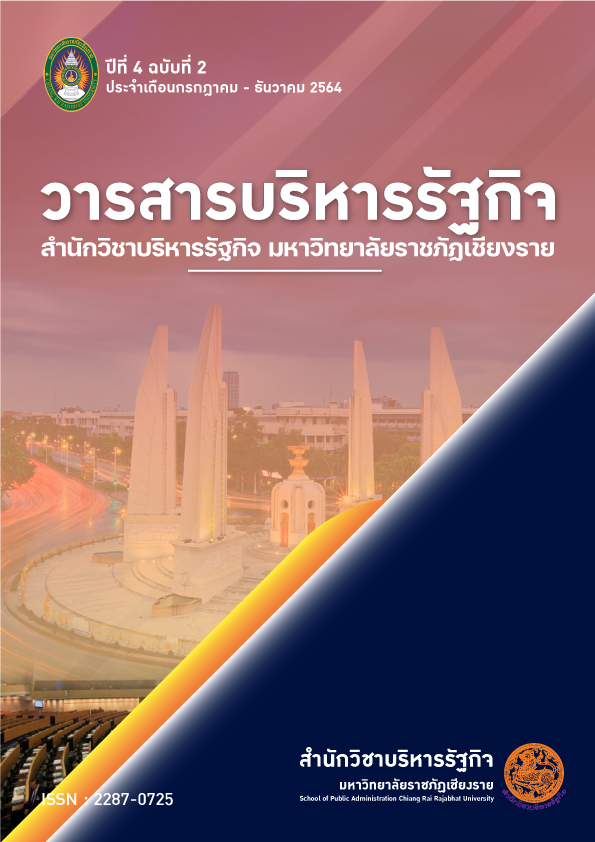Economic Loss of Non-Breastfeeding and Social Responsibility to Breastfeeding Promotion
Main Article Content
Abstract
Breastfeeding is considered to be importantly fundamental to the national economic development. It is inextricably woven into not only strengthening a close bond between a mother and an infant but also developing a deep emotional intimacy between them. [Exclusive] breastfeeding is profoundly beneficial for both the infant and the mother to improve both the maternal bond and infant intelligence as well as their physical and mental heaths.But if the importance of the maternal breastmilk is not emphasized or devalued, this will possibly result in economic loss as follows: (1) opportunity loss of infant intelligence development, (2) medical expenses, (3) work efficiency of a mother caring for her neonate (or newborn infant), (4) an increase in family’s expenditure on infant formulas, and (5) the effects of trade balance and cash outflow issues. To prevent economic loss possibly caused by non-breastfeeding, thus all parties involved should take social responsibilities for promoting [exclusive] breastfeeding, namely: (1) cooperation between public agencies and all relevant sectors, (2) formulation of welfare policy and benefit entitlement for breastfeeding mothers, (3) enactment of laws to restrict the marketing of infant formula productions, (4) application of Integrated Marketing Communication to breastfeeding promotion, (5) creation of breastfeeding culture, and (6) cooperation from peers and family members to promote breastfeeding mothers. These will encourage mothers, peers, family members, public sectors, and other organizations to become aware of the importance of [exclusive] breastfeeding and collaborate on the breastfeeding promotion, which might lead to being part of sustainable economic development.
Article Details
References
กุรอ่าน. (ม.ป.ป.). โองการในพระมหาคัมภีร์อัลกรุอานซุเราะห์อัลลุกมาน อายัตที่ 14.
อมรินทร์. (2559). ประโยชน์ของนมแม่. (ปอแก้ว). [ออนไลน์]. เข้าถึงได้จาก https://www.amarinbabyandkids.com/parenting/baby/breastfeeding-for-better/
สำนักงานข่าวอิศรา. (2560). ผลวิจัยชี้เพิ่มอัตราการเลี้ยงลูกด้วยนมแม่ ช่วยชีวิตเด็กทั่วโลก 8.2 เเสนคนต่อปี. [ออนไลน์]. เข้าถึงได้จาก http://www.isranews.org/thaireform/thaireform-news/item/45760-mom_45760.html
นันธิยา วัตหายุ. (2554). การส่งเสริมการเลี้ยงลูกด้วยนมแม่ของครอบครัวและสังคม.ศูนย์อบรมนมแม่และโภชนาการในเด็กเล็ก. คณะพยาบาลศาสตร์มหาวิทยาลัยมหิดล.
โรสนา รัฐการันย์. (2559). การสื่อสารการตลาดแบบผสมผสานเพื่อการสร้างทัศนคติใหม่ให้กับบุคคลในครอบครัวในการเลี้ยงลูกด้วยนมแม่.
พรนภา ตั้งสุขสันต. (2558). การประชาสัมพันธ์การเลี้ยงลูกด้วยนมแม่ในหญิงตั้งครรภ์. วารสารพยาบาลสาธารณสุข. 25(3), 107[ออนไลน์]. เข้าถึงได้จาก http://phpn.ph.mahidol.ac.th/Journal/Full%20text/2554/no3_54/pornnapa.pdf
ประชาไทย. (2560). มูลค่าของการเลี้ยงลูกด้วยนมแม่. [ออนไลน์]. เข้าถึงได้จาก http://prachatai.com/journal/2016/03/64835
ศูนย์มูลนิธินมแม่แห่งประเทศไทย. (2557). นมแม่ช่วยครัวเรือนไทยประหยัดรายจ่ายมากกว่า 1.8 พันล้านบาทต่อปี หากทารกทุกคนได้รับนมแม่อย่างเดียวเป็นเวลามากกว่า 6 เดือน. [ออนไลน์]. เข้าถึงได้จาก http://www.thaibreastfeeding.org/page.php?id=31
ศูนย์มูลนิธินมแม่แห่งประเทศไทย. (2556). สถานการณ์ทั่วโลกในการเลี้ยงลูกด้วยนมแม่. [ออนไลน์]. เข้าถึงได้จาก http://www.ped.si.mahidol.ac.th/vdo/breastfeeding/set-breastfeeding/6.situationOfBF.pdf
สถาบันราชานุกูล. (2556). การเลี้ยงลูกด้วยนมแม่. [ออนไลน์]. เข้าถึงได้จาก http://iqeq.rajanukul.go.th/index.php?mode=nutrition&group_id=0&id=143
สำนักงานกองทุนสนับสนุนการสร้างเสริมสุขภาพ. (2559). มุมนมแม่ CSR สร้างชาติ. [ออนไลน์]. เข้าถึงได้จาก https://www.thaihealth.or.th/Content/33228-
สำนักข่าวอิศรา. (2559). การส่งเสริมวัฒนธรรมนมแม่. [ออนไลน์]. เข้าถึงได้จาก https://www.isranews.org/thaireform-news-health/45760-mom_45760.html
องค์การยูนิเซฟประเทศไทย. (2560). ประโยชน์ของการเลี้ยงลูกด้วยนมแม่. [ออนไลน์]. เข้าถึงได้จาก http://thailandunicef.blogspot.com/2016/01/blog-post.html?m=1


